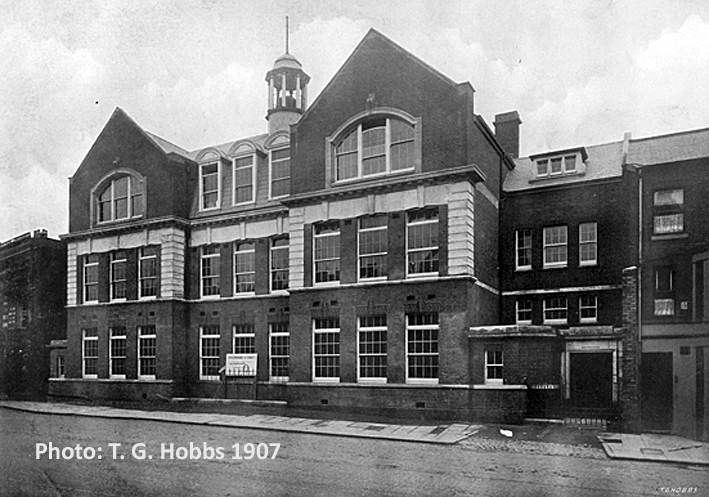
[The Luton News: Thursday, July 17th, 1919]
The establishment of a Cadet Corps in connection with the Luton Modern School was the subject of a protest from the Luton Labour Party and Trades Council at Tuesday's meeting of the Governors, held at the Town Hall.
The protest was conveyed in a resolution passed by the Labour Party at a recent meeting, and forwarded by Mr F. Goodwin in the following terms: “That this Council protests against military training being introduced into out elementary and secondary schools, and suggests that our representatives on the governing body of the Modern School use their influence to get the present military training withdrawn.”
Councillor W. J. Primett did not see any reason to alter his views on this matter. These people had a perfect right to pass a resolution and send it in, but while respecting heir views they could differ from them. There had been no compulsion in this matter in any shape or form.
All schools of this description and of any standing had a cadet corps, and physically some of the boys had benefited immensely as the result of the training they were receiving. The parents were called together before it was formed, and were most anxious that it should be formed.
“As to militarism, we have had enough to last our time, and our children's time, but this is not a military matter at all,” said Mr Primett in moving that the letter be received but no action taken. This was formally seconded.
Mr G. H. Latchmore declared himself in sympathy with the letter which had been received. The Governors would understand that from the commencement he had deprecated the introduction of a cadet corps into the Modern School system of education, for he viewed it as the handmaid of militarism, and it was teaching the boys military tactics.
He had very carefully read the instructions sent to the Governors, and the final idea and purpose of a cadet corps was to teach the boys the elements of military training. We had just passed through the greatest war in the history of the world, and had not got rid of the effects of it.
We should not get rid of the effects of this catastrophe in our lifetime or the next generation. It seemed to him that as an educational body they ought to encourage every effort to bring the educational idea of the country as far as possible in relation with the sentiments which were really beginning to prevail in the world – that there should be a cessation of war between countries. He did not see that preparedness for war would end war, unless there was a determined effort all through the country and by all countries to reject military training.
It had been said, continued Mr Latchmore, that all schools of similar standing had cadet corps. That was true, and he agreed the physical training part was good for the boys, and also the inculcation of a spirit of mutual helpfulness. With that part he thoroughly sympathised, but they were teaching the boys to handle muskets, and even thought they were sham muskets, it was with the idea that militarism was an essential part of their future life as citizens. It was to this idea that he was opposed.
The Chairman (Alderman H. O. Williams): “Personally I cannot agree with Mr Latchmore. I still think it was the unpreparedness of the nation that caused the war, and not preparedness. I still think that provision for the defence of the realm ought to be maintained, and that it is no good relying on other people's good will.”
Mrs Slatter expressed herself entirely in agreement with the Cadet Corps. The advantages gained, physically and educationally, far outweighed any question of military training, and she did not look on it as military training, but as physical and educational training with which she thoroughly agreed.
It was agreed that no action should be taken on the Labour Party letter.

